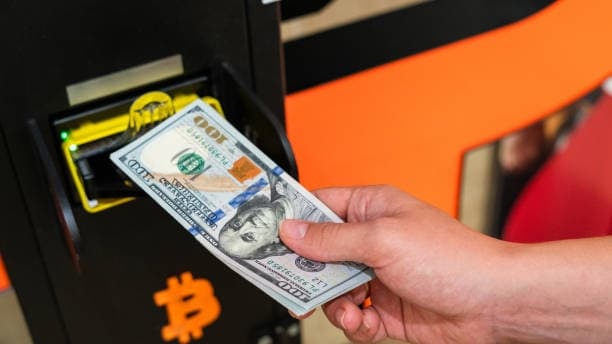In the ever-evolving landscape of finance, one of the most transformative trends is Decentralized Finance (DeFi). Leveraging blockchain technology, DeFi has emerged as a groundbreaking alternative to traditional financial systems, offering users a decentralized, transparent, and efficient way to manage their assets and conduct transactions. But what exactly is DeFi, and why is it reshaping the financial world?
What is DeFi?
DeFi can be described as a set of decentralized financial solutions implemented on the basis of blockchain platforms, firstly, Ethereum. Unlike the conventional financial systems which involve intermediary such as banks and brokers, DeFi platforms involve smart contracts which are AI self-executing contract programs which operate on set codebases.
These platforms provide a wide range of services, including lending, borrowing, trading, and investing, all without the need for centralized authorities. Instead, users interact directly with the system, gaining greater control over their financial activities.
Key Features of DeFi
1. Decentralization
Traditional finance relies on centralized institutions to manage transactions. DeFi eliminates these intermediaries, allowing users to engage directly with protocols on the blockchain. This decentralization reduces costs, enhances transparency, and minimizes the risk of institutional bias or corruption.
2. Transparency
All transactions in DeFi are recorded on a public ledger, ensuring transparency and traceability. This level of openness builds trust among users, as they can independently verify all activities.
3. Accessibility
DeFi platforms are open to anyone with an internet connection and a digital wallet. This inclusivity allows people in underbanked or unbanked regions to access financial services that were previously out of reach.
4. Interoperability
DeFi applications can interact seamlessly with each other, creating a dynamic ecosystem where users can move assets and data across platforms effortlessly.
Popular Use Cases of DeFi
1. Lending and Borrowing
For instance, Aave and Compound allow their users to provide their cryptocurrency in exchange for interest or to access assets by depositing them as collateral. Such services do not require any form of credit check, and this makes them popular with many people.
2. Decentralized Exchanges (DEXs)
DEXs such as Uniswap and SushiSwap offer the ability to transact in cryptocurrencies without using a CA, directly from one’s own wallet. This avoids hacks or fraud as associated with centralized exchanges.
3. Stablecoins
Stablecoins, such as DAI and USDC, are pegged to traditional assets like the US dollar, providing a stable medium of exchange within the volatile crypto market.
4. Yield Farming and Staking
Yield farming involves lending or staking assets in DeFi protocols to earn rewards. This innovative concept has given rise to new ways for users to maximize returns on their holdings.
5. Insurance
DeFi protocols like Nexus Mutual offer decentralized insurance, allowing users to protect themselves against risks such as smart contract failures or exchange hacks.
Benefits of DeFi
DeFi’s benefits extend beyond individuals to the broader financial ecosystem:
- Lower Costs: By eliminating intermediaries, DeFi significantly reduces fees associated with traditional financial transactions.
- Faster Transactions: Smart contracts automate processes, allowing for near-instant settlements.
- Global Reach: DeFi is borderless, enabling users to transact globally without regulatory restrictions or currency exchange fees.
Challenges Facing DeFi
Despite its potential, DeFi is not without challenges:
- Regulatory Uncertainty: Governments worldwide are still grappling with how to regulate DeFi, creating uncertainty for developers and users.
- Security Concerns: Vulnerabilities in smart contracts have led to significant losses in the past.
- Complexity: For newcomers, understanding and using DeFi platforms can be intimidating.
Staying informed about developments in the DeFi space is essential for navigating these challenges. Trusted resources like Alerta Cripto provides the latest news and insights on cryptocurrency and blockchain trends, helping users make informed decisions.
How DeFi is Reshaping the Financial World
Empowering Individuals
DeFi puts financial control back into the hands of individuals. By removing intermediaries, users gain direct access to services, fostering a sense of empowerment and autonomy.
Driving Innovation
DeFi is at the forefront of financial innovation, introducing concepts like tokenized assets and decentralized autonomous organizations (DAOs). These innovations are paving the way for a more inclusive and efficient financial future.
Challenging Traditional Systems
DeFi has put traditional financial services firms on the back foot as they need to reassess their best practices. Banks and other associated organizations are applying blockchain and decentralized technologies as they strive to become sustainable.
That is why DeFi starts functioning around the clock without geographical limitations – it directly interferes with the traditional concept of banking applying 9 to 5 work experience. In the same way, it is highly transparent and optimizes what a financial services company could look like in the future.
The Future of DeFi
As the DeFi ecosystem continues to grow, it is likely to drive further disruption in the financial world. Improvements in scalability, security, and user experience will attract more participants, solidifying DeFi’s role in the global economy.
To stay ahead in this rapidly evolving field, regular updates and insights are crucial. Platforms like Alerta Cripto offer invaluable information on cryptocurrency and blockchain trends, enabling users to explore new opportunities in DeFi.
Conclusion
Thus, Decentralized Finance is a radical model of the new generation of financial solutions. DeFi has emerged as an approach to democratize, decentralize, and advance the Financial Industry using the blockchain. Indeed its potential is that of a system capable of radically changing the face of the financial world: this is a preview of a world where finance can and will be for all.




